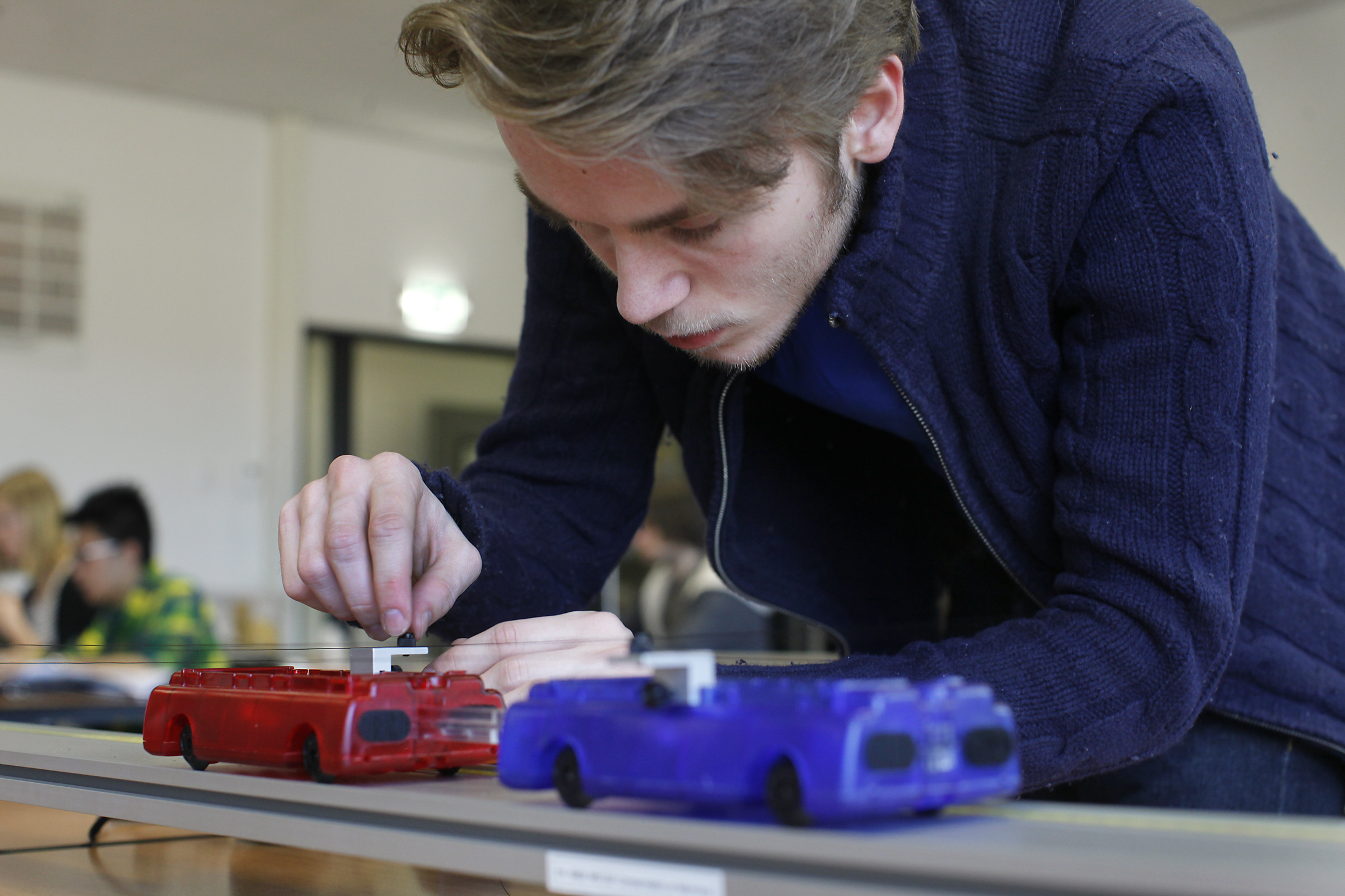Projects
We expect our students to have a strong curiosity, ready to explore the world of science. Learn from doing and get your essential hands-on experience in our modern and fully equipped laboratories at the Chemelot Campus, one of the most innovative chemical and materials communities in Europe. We offer you an inspirational environment for your research, practicals and projects, enabling you to experience science at its best.
You will find it more rewarding to seek your own answers than to search for what others previously published. Here are some examples from previous student-projects:
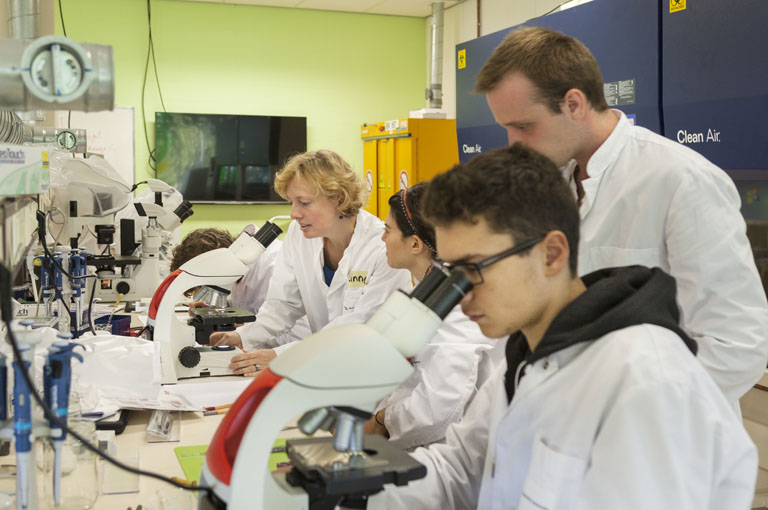
At the end of each semester, you will put your acquired knowledge and skills into practice during a four-week project.
The predatory behaviour of horse leeches
Leeches are probably best known as extras in dubious horror movies, displayed as bloodsucking parasites. That is not exactly a fair picture, in fact, many leeches do not feed on blood at all and are harmless to humans. One of those innocent leeches is the horse leech, which feeds solely on aquatic invertebrates and possibly dead animals.
The goal of this project was to determine in carefully controlled experiments, what horse leeches (Haemopis sanguisuga) prefer to eat under what conditions. Students successfully experimented with potential prey from the same habitat as horse leeches and were able to identify clear feeding preferences and behaviour.
"Besides learning how to set up research, the project was a great experience to get familiar with aspects of science that you don’t learn in lectures, like project management and balancing the individual strengths of the group members."
Alex Hooft
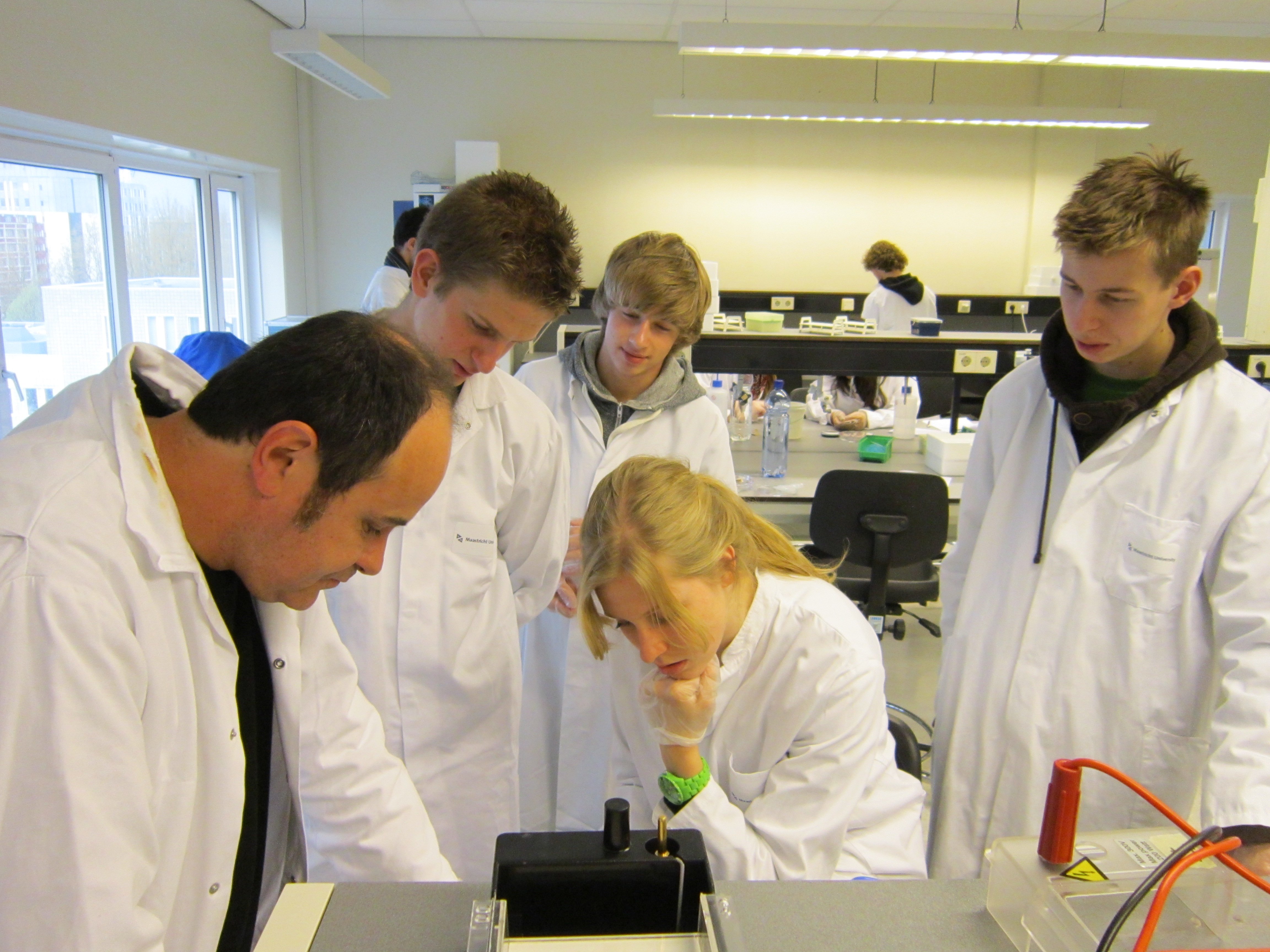
Smart bite: an innovative way of combating teeth grinding
Bruxism is the medical term for clenching the jaws and grinding the teeth. It is quite a common phenomenon as one in ten people suffer from it. Bruxism is believed to be an unconscious response to stress, causing teeth damage and excessive strain to jaw muscles. This could lead to many complications including migraine, sore muscles and earaches. Most cases of bruxism occur subconsciously during sleep, but it can also happen while people are awake, the so-called wake bruxism.
To combat wake bruxism, students designed a sensitive polymer prototype that can be implemented in a dental splint. This smart bite device captures any bruxism occurrence and signals the patient’s smartphone through a Bluetooth connection, triggering the patient to stop further teeth grinding.
For this project, students collaborated with the Maastricht University Medical Centre (MUMC+) and medical engineers of Instrument Development Engineering & Evaluation (IDEE), the technological enabler that facilitates the MUMC+ in its core tasks of research, education and healthcare provision.
"What was really interesting in this project was to experience what a scientific career could be like."
Onno Akkermans
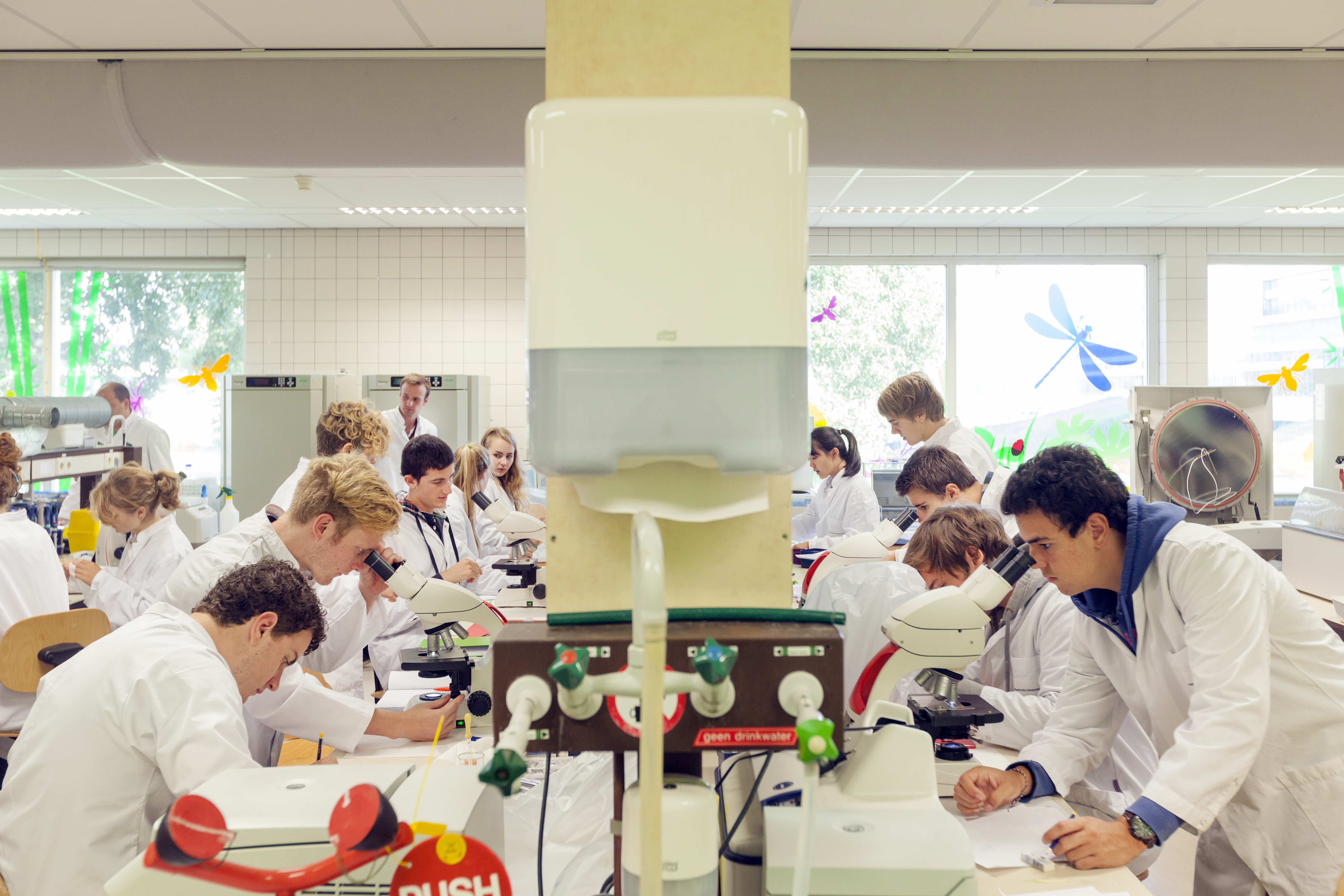
Allometry of conduction velocity of giant fibers in earthworms
Your brain registers pain in milliseconds when you hurt your foot. Neurons carry these signals through the body at high speed, the so-called conduction velocity. How fast these particular signals travel depends on several factors, like size or weight.
This project investigated the impact of body weight, length and anesthetics on the conduction velocity of two giant fibers within earthworms. They have been used in a classroom setting to teach about conduction velocity for decades because earthworms have several large neurons that run along the entire length of their body, the medial giant fiber (MGF) and two lateral giant fibers (LGF).
Students tested the earthworm species Lumbricus terrestris, which were anesthetized with either ethanol or carbonated water. Using a spiker box for signal velocity measurement, they not only found out that the conduction velocity increases when the body of the worm gains weight and length, but also that length is significantly correlated with conduction velocity.
"Putting all the pieces together to understand what the results indicate was both challenging and fun."
Anna-Maria Pistikou
The synthesis and use of metal-salen complexes for selective oxidation of hydroxymethylfurfural (HMF) into diformylfuran (DFF)
Biobased polymers could be a renewable and sustainable alternative to conventional petroleum-based plastics, catering for a variety of applications in packaging, construction and consumer goods. The goal of this lab-based project was to develop catalytic oxidation chemistry for scalable synthesis of target biobased monomers as building blocks for these bio-based polymers.
Students synthesized metal-salen complexes as catalyst for oxidizing hydroxymethylfurfural (HMF), a dehydration product of fruit sugar fructose into diformylfuran (DFF), a constituent of bio-based polymers. Previously, such an oxidation procedure incorporated expensive and environmentally unfriendly chemicals.
Through organic and organometallic chemistry, students successfully synthesized two catalysts and improved the oxidation procedure of bioderived compounds. A challenging, interdisciplinary project aimed at developing student skills in synthetic organic / inorganic chemistry, spectroscopy and polymer chemistry.
"This project was all about higher level chemistry, enabling us to put our organic and inorganic chemistry lessons into practice"
Joost Venner
Bat Hunting
Students in the class Field Skills in Biology went on a nocturnal excursion focused on bats in the town parks of Maastricht. Their guide was Ilja Zeilstra, an ecological consultant with the engineering company Witteveen+Bos. As Ilja explained: “bats are protected by both European and Dutch law, therefore when anything is built or demolished we have to ensure that the bats are protected from these effects”. The students used bat detectors, which make the high pitched tweets of bats audible to human hearing, to identify bat species and link their occurrence to the habitat and insects present.
In June some students who have done the class will be taking part in a field research project with Ilja on bat conservation issues for the Province of Limburg.
"I like the idea of applying knowledge from my courses at the MSC to a real life situation."
Alex Hooft
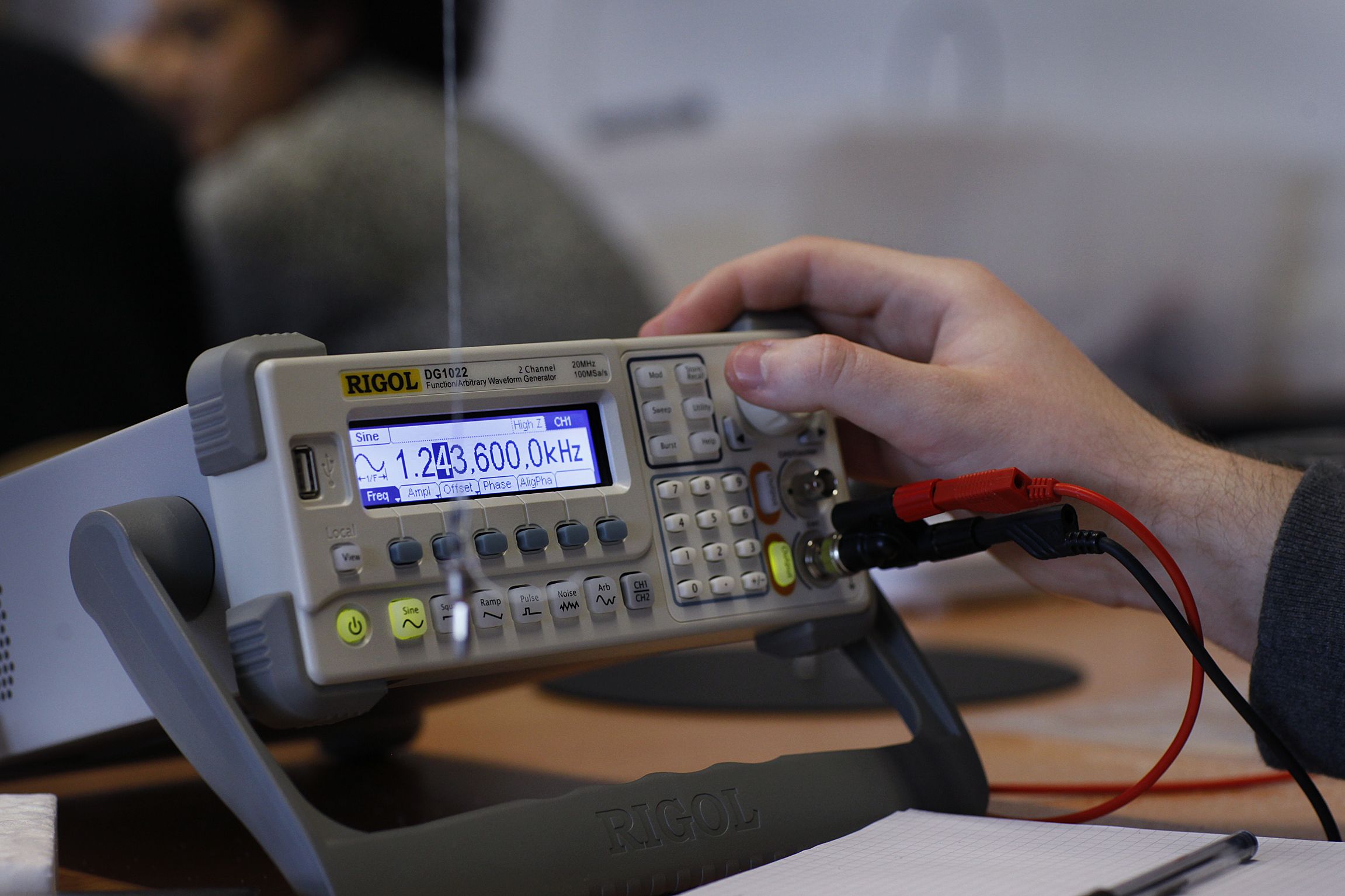
- Electromagnetism in action: the physics behind metal detection
- The predatory behaviour of horse leeches
- Smart bite: an innovative way of combating teeth grinding
- Allometry of conduction velocity of giant fibers in earthworms
- The synthesis and use of metal-salen complexes for selective oxidation of hydroxymethylfurfural (HMF) into diformylfuran (DFF)
- Bat Hunting
